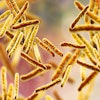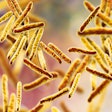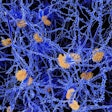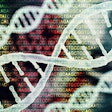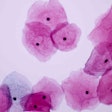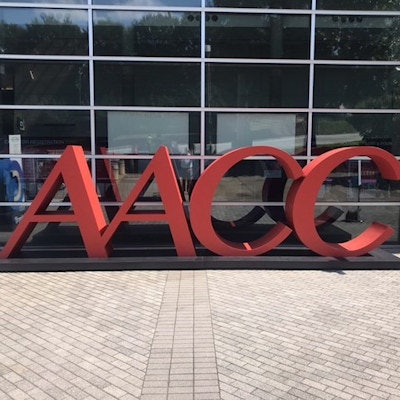
Scientists deserve an "A" grade addressing the COVID-19 pandemic but an "F" on communicating the message, said Holden Thorp, PhD, editor-in-chief of the Science family of journals. Thorp spoke at the September 29 plenary session of the American Association for Clinical Chemistry's (AACC) annual meeting.
In his talk, Thorp addressed a number of topics related to the public role of Science and other top peer-reviewed journals, including its response to COVID-19, the role of preprints of scientific papers, strategies for better communication concerning science, and the role of social media in public scientific discourse.
Science's response to COVID-19
Thorp reflected on how Science responded to the COVID-19 pandemic and said that in general the journal performed quite well. Thorp noted that Science had been online as early as 1996, so when stay-at-home orders were issued in 2020, the journal was well prepared to pivot to fully online, remote operations. The biggest challenge was the crush of COVID-19 papers to contend with in March 2020 with the same size editorial staff from February 2020.
Thorp said that when deciding which COVID-19-related papers to publish in Science, in addition to evaluating technical quality, the editors asked three questions about each paper, including:
To ensure that knowledge relevant to the pandemic was disseminated as quickly as possible, Science, along with the other top journals, reached an agreement that was brokered by the Wellcome Trust to expedite paper submissions, remove media embargos, and encourage authors to post preprints.
"We didn't want the peer review system to be holding up the information, and we agreed to make all of our COVID papers free on our website -- not behind the paywall, not requiring an institutional license," Thorp said.
The role of preprints
Thorp addressed some of the controversies about preprints of scientific papers, saying they have an important role to play alongside major peer-reviewed journals like Science.
"We're mostly bullish and excited about preprints," Thorp said. "Yes, they create various complications for our media team. And yes, they can be exploited by people who want to maliciously use them to undermine science. But in general, getting that information out there early is for the best."
The biggest downside of preprints, Thorp observed, is that "anybody could take a PDF and stick it on the internet, and make it look pretty official." Thorp cited a specific example of a recent preprint that exaggerated the incidence of myocarditis in teenagers after they received the mRNA COVID-19 vaccination.
"It got put on a preprint server and got used by the misinformation crowd to say, 'See, the COVID vaccine is dangerous,'" Thorp said. "But this paper never got, to my knowledge, published in a peer-reviewed journal, and it later came out that had been submitted to three peer-reviewed journals and rejected before it got put up."
How scientists communicate with the public
Thorp noted that scientists are failing at the important task of communicating with the public. "I think it's fair to say that science got an 'A-plus' on the pandemic," Thorp said. "But when it comes to scientists doing social science and the humanities, we got an 'F,' because we didn't understand how to communicate our message beyond to each other."
Thorp cited masks, vaccines, systemic racism, and climate change as issues where scientists need to engage more effectively with the public. "We haven't got our message out about climate change," Thorp said. "And part of it is we've been doing the same thing for 75 years, thinking that if we just get everything right in the journals, eventually people will come around."
One problem is the tendency of scientists to hedge their conclusions with endless caveats that "bore people to tears," Thorp said. "In my opinion, we need a much more nuanced and sophisticated strategy," he said. "And one of the reasons why we need that is that the other side has a much more nuanced and sophisticated strategy."
Thorp wasn't shy about naming the purveyors of misinformation. "We're getting our lunch eaten by Ben Shapiro and Dan Bongino and ... Joe Rogan ... these guys are destroying us," Thorp said. "Because they have millions and millions of people who believe what they say no matter what, and we don't have very many people who believe what we say no matter what."
Rather than try to beat the peddlers of misinformation at their own game, Thorp said scientists should focus on getting the science right and debating the science with colleagues. However, scientists should leave the messaging to allies who know how to navigate the public arena.
"You know, you hear this idea that every scientist is supposed to become a public communicator," Thorp said. "I don't believe that. People ask me all the time, 'How do I get my climate-denying uncle to believe in climate change?' Well, I can tell you the worst way would be to print out all my editorials and give them to him. I'm not the right person to do that. I write for other scientists. That is a totally different message."
Holden Thorp has been the editor-in-chief of the Science family of journals since October 2019. He was provost from 2013 to 2019 of Washington University in St. Louis, where he is the Rita Levi-Montalcini Distinguished University Professor, holding appointments in chemistry and medicine. From 2008 to 2013, Thorp was chancellor of the University of North Carolina at Chapel Hill.
